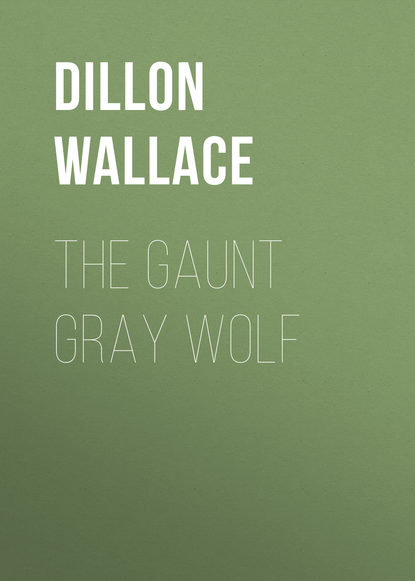По всем вопросам обращайтесь на: info@litportal.ru
(©) 2003-2024.
✖
The Gaunt Gray Wolf
Настройки чтения
Размер шрифта
Высота строк
Поля
A full stomach sometimes wholly changes one's outlook upon the world. Shad was beginning now to view his adventure from a whimsical standpoint, a result induced partially by his dinner, largely by Bob's philosophical attitude.
It was not anticipated the shelter would be required for long, and a comfortable lean-to under the lee of the hill, with back and ends enclosed, and closely thatched with boughs and moss, was considered sufficient. A thick, springy bed of spruce boughs was then arranged, and the temporary home was completed.
Then Bob proceeded to set deadfalls, utilising flat stones and raising them on a figure 4, which he baited with tender birch boughs. Several rabbits were started in the course of the afternoon, giving assurance that the deadfalls would yield sufficient food for their needs, though no results could be expected from them until the following morning.
"Now for supper, Shad, we'll have t' be usin' some shells," he announced. "Supposin' you tries un. I were goin' t' make a bow an' arrows t' save th' shells, but they's nothin' t' feather th' arrows with, an' no string that'd be strong enough for th' bow."
"All right," agreed Shad. "I'll get them;" and within half an hour he returned with a bag of two fat young rabbits.
Their fire was built before the lean-to, and a very small blaze was found sufficient to heat it to a cosy warmth. Here they sat and ate their grilled rabbit and drank their tea, quite as comfortably as they would have done in their tent or tilt, though during the night one or the other found it necessary to rise several times to renew the fire.
Bivouacking in this manner was more or less of an ordinary circumstance in Ungava Bob's life. He looked upon it as the sort of thing to be expected, and as a matter of course. He felt indeed that they were very fortunately situated, and for the present he had small doubt that their imprisonment would prove but a temporary inconvenience.
The deadfalls yielded them the first night three rabbits; another was shot. They had quite enough to eat the next day, and Shad took a brighter view of the matter.
"By Jove!" he laughed, after breakfast, "I wonder what the fellows at home would say if they should see me now, playing the part of Robinson Crusoe?" and then he began to sing:
"'Fare thee well, for I must leave thee.
Do not let the parting grieve thee,
And remember that the best of friends must part,
must part.
Adieu, adieu, kind friends, adieu, adieu, adieu,
I can no longer stay with you, stay with you,
I'll hang my harp on a weeping-willow tree,
And may the world go well with thee.'"
But when another morning came, with no sugar remaining for the tea, and no other food than the now monotonous unsalted rabbit, Shad rebelled.
"See here, Bob!" he exclaimed irritably, "I can't eat any more rabbit! It nauseates me to even think of it! We've got to do something."
"We can't help un, now, Shad," answered Bob soothingly. "Rabbit ain't so bad."
"Not once or twice, or even three times in succession–but eternally and forever, I can't go it."
"It does get a bit wearisome, but 'tis a wonderful lot better'n no rabbit, when rabbit's all there is."
"Wearisome! Wearisome! Confound it, Bob, it's disgusting! Now we've got to do something to get ourselves out of here, and that quick."
"I'm not knowin', now, what t' do till th' others comes, an' I'm knowin' they will."
"Come, Bob, let's make a try for that wall down there. Even if the canoe does get away from us, we can make the wall–I know we can."
"No," and Bob shook his head ominously, "I'm ready t' take any fair chanct, Shad, but they wouldn't be even a fair chanet t' make un."
"Oh, bosh!" exclaimed Shad angrily. "I thought you had some nerve."
"'Tisn't a matter o' nerve, Shad; 'tis a matter o' what can be done an' what can't."
"Oh, yes, it can! Anyone with two legs and two hands and two eyes and just a grain of grit can do it."
Bob, quiet and unruffled, grilled his rabbit, refusing to take offence or to be moved at Shad's remarks, evidently intended to goad him into what his experience told him would certainly prove a hopeless and foolhardy venture.
It is a psychological phenomenon that men, denied action and confined to limited and solitary surroundings, become highly irascible. They find cause for offence in every word and every action of their companions, and it is not unusual for men situated as Ungava Bob and Shad Trowbridge were to lapse into such a state of antagonism toward one another that they cease to converse.
This was the condition into which Shad Trowbridge quickly lapsed. He soon came to ascribe to timidity and cowardice Bob's opposition to his wish to attempt a crossing to the mainland. He was one who chafed under restraint, and one who, when he had once decided upon a course of action, could not brook opposition from another; and though at heart he knew that Bob was fearless and brave, and that his arguments were sound, yet he would not now admit this, even to himself.
Normally Shad was a good fellow, and he would endure hardships cheerfully if the hardships were accompanied by physical activity; but the condition of monotonous existence, accompanied by idleness and inactivity, which they were now experiencing, was too great for him to withstand, and he was prepared to take the most desperate chance to escape from it. When at length the tea and his tobacco were gone, and nothing but the daily ration of unseasoned rabbit remained, the thought of thus continuing indefinitely became unendurable to him.
Ungava Bob, on the contrary, had been accustomed to wilderness solitude all his life. This, and a naturally even disposition, coupled with a philosophical temperament, rendered him capable of overlooking Shad's slurs, and when finally Shad ceased to speak to him, or when spoken to by Bob ceased to acknowledge that he heard, Bob permitted the slight to pass unnoticed.
At length, one day, when Shad had nursed his supposed grievance to a point where he could no longer endure it, he blurted out brutally:
"See here, I've stood this devilish cowardice of yours as long as I'm going to. Do you see where the sun is! It's noon. Now I'll give you until that sun drops half-way to the horizon to decide whether or not you're going across with me. If you say 'No,' I'm going without you, that's all, and you can stay here and eat rabbit, and rot, if you choose."
"Now, Shad," Bob placated, "I knows how you feels, an' it's your judgment ag'in mine. But I'm havin' experience with places like that, an' I knows we can't make th' crossin' an' land. Now don't try un, Shad."
"Don't 'Shad' me–My God, Bob! Look there!" he suddenly broke off.
Shooting past them, half standing in their birch canoe, paddling with the desperation of men facing doom, one with his sound paddle, the other with his broken one, were the Indians that Manikawan had sent adrift.
They were very near the island–so near that every outline of their drawn, terrorstricken faces was visible–but too far away to reach the gravelly point upon which Bob and Shad had found refuge. Indeed, they seemed not to see it, or to see anything but the horrible spectral phantom of the evil spirit that they believed had them in its control.
On–on–on-they sped, ever faster–faster toward the pounding rapids–impotently, though still desperately, wielding their paddles. Bob and Shad stood spellbound and horror-stricken. The Indians were nearing the first white foam! In a moment their canoe would strike it! It was in the foam! It rose for an instant upon a white crest, the Indians' paddles still working–then was swallowed up in the swirling tumult of waves and whirlpools, never to reappear.
Ungava Bob and Shad Trowbridge stood for a moment in awe-stricken horror. Then they sat down upon the rock on which Shad had sunk when overcome with shock on the day of their escape upon the island.
"Bob," said Shad, at last, "that was the most terrible thing I ever beheld!"
"'Twere awful!" assented Bob.
"It shows us, Bob, what you and I escaped. Bob, I've been very disagreeable lately. Take my hand and forgive me, won't you?"
"'Twere th' rabbit meat, Shad," said Bob, taking Shad's hand. "Rabbit meat be wonderful tryin' t' eat steady. I were knowin', now, you'd be all right again, Shad."
"I think I've been demented, Bob–I'm sure I have–anyway, believe it, and don't hold it against me."
"I'll not be holdin' un ag'in you, Shad. 'Twere natural, and–" Bob ceased speaking and sat staring at the high bank of the mainland. "Manikawan!" he exclaimed, springing up and crossing the island point at a bound.
There she stood, joy, wonder, incredulity, written upon her face. She had believed White Brother of the Snow dead, but here she saw him in flesh and alive, and he had spoken her name.
"White Brother of the Snow! Oh, White Brother of the Snow! The evil spirits did not devour you, but like hungry wolves they have devoured your enemies."
Very quickly Bob explained their predicament, and she listened silently. Then she went to the sloping rock, descended its dangerous angle to the water's edge, and returned.
"White Brother of the Snow and his friend would find no lodgment there," said she. "It is a place of deceit. But White Brother of the Snow knows how to be patient. Let him and his friend wait. The evil spirits cannot reach up for them where they are. When the sun returns again to the high point in the heavens Manikawan will stand here. Wait."
The next instant she was gone.








